Introduction
In the fast-paced world of property management, data is a powerful asset that can transform the way you operate. By leveraging data analytics, property managers can gain valuable insights into every aspect of their operations—from maintenance trends and tenant satisfaction to financial performance and market forecasting. At LocalPropertyManagementSoftware.com.au, we believe that a data-driven approach is key to making smarter, more informed decisions that lead to improved efficiency, cost savings, and enhanced tenant experiences. In this detailed guide, we explore how analytics can drive smarter decisions in property management and outline best practices for integrating these insights into your daily operations.
The Role of Data Analytics in Property Management
- Enhanced Decision-Making:
- Real-Time Insights:
Access to real-time data allows property managers to monitor performance metrics as they happen. Whether it’s tracking occupancy rates, monitoring maintenance requests, or analysing rental income, real-time insights enable quick adjustments and proactive management. - Predictive Analytics:
Advanced analytics tools can forecast trends such as tenant turnover, maintenance needs, or market fluctuations. This predictive capability empowers managers to plan ahead, optimise resource allocation, and mitigate risks before they become costly issues.
- Real-Time Insights:
- Optimising Operational Efficiency:
- Streamlined Maintenance:
Analytics can identify patterns in maintenance requests and highlight recurring issues. By addressing these trends, managers can schedule preventive maintenance, reduce downtime, and lower repair costs. - Improved Resource Allocation:
Data-driven insights help in assigning tasks and managing staffing levels effectively. Understanding peak periods and usage patterns allows for more efficient scheduling and better utilisation of resources.
- Streamlined Maintenance:
- Financial Performance and Cost Management:
- Budget Forecasting:
Analyzing historical data on expenses, rent collections, and operational costs can help in creating more accurate budgets and forecasts. - Identifying Cost-Saving Opportunities:
Detailed analytics can pinpoint inefficiencies in energy consumption, maintenance spending, and other operational areas, paving the way for targeted cost-reduction strategies.
- Budget Forecasting:
- Enhancing Tenant Experience:
- Customised Services:
Analytics can reveal tenant preferences and behaviours, enabling property managers to tailor services and amenities to meet specific needs. - Feedback Analysis:
By analysing survey responses and review data, managers can identify areas for improvement and implement changes that boost tenant satisfaction and retention.
- Customised Services:
Key Components of a Data Analytics Strategy
- Data Collection:
- Integrated Systems:
Use property management software that consolidates data from various sources, such as tenant portals, maintenance logs, financial systems, and IoT devices. This creates a unified database that can be easily analysed. - Automated Data Capture:
Implement tools that automate data collection to minimise manual entry errors and ensure that the data is current and accurate.
- Integrated Systems:
- Data Storage and Management:
- Cloud-Based Solutions:
Leverage cloud storage to securely store large volumes of data. Cloud-based systems offer scalability, making it easier to manage data as your property portfolio grows. - Data Governance:
Establish clear data management policies to ensure data integrity, security, and compliance with regulations such as GDPR.
- Cloud-Based Solutions:
- Analytics Tools and Techniques:
- Dashboard and Reporting Tools:
Utilise customisable dashboards that display key performance indicators (KPIs) in an easily digestible format. Tools such as Power BI, Tableau, or built-in reporting features of your property management software can provide valuable insights. - Advanced Analytics and Machine Learning:
For deeper insights, employ machine learning algorithms to detect patterns and predict trends. These techniques can help you forecast tenant behaviour, maintenance needs, and financial performance.
- Dashboard and Reporting Tools:
- Actionable Insights:
- Data Visualisation:
Use charts, graphs, and heat maps to make data more understandable. Visualisation tools enable quick identification of trends and anomalies. - Regular Reviews:
Schedule periodic reviews of the analytics data to adjust strategies and operations. This iterative process ensures continuous improvement and responsiveness to changing market conditions.
- Data Visualisation:
Best Practices for Implementing Data Analytics in Property Management
- Define Clear Objectives:
Begin by identifying what you aim to achieve with data analytics. Whether it’s reducing operational costs, improving tenant satisfaction, or forecasting market trends, having clear goals will guide your analytics strategy. - Invest in the Right Technology:
Choose analytics tools and property management software that are compatible with your existing systems. Prioritise platforms that offer real-time insights and are scalable as your business grows. - Foster a Data-Driven Culture:
Encourage your team to use data in their daily decision-making. Provide training sessions on how to interpret analytics reports and integrate insights into their workflow. - Ensure Data Quality:
Regularly audit your data for accuracy and consistency. Clean, reliable data is the foundation of effective analytics. - Act on Insights:
Data is only valuable when it drives action. Develop a process to quickly implement changes based on analytics findings and measure the outcomes.
Conclusion
Leveraging data analytics in property management is not just about collecting numbers—it’s about transforming raw data into actionable insights that drive smarter decisions. From optimising operational efficiency and enhancing tenant experiences to managing costs and forecasting trends, analytics empowers property managers to stay competitive in an ever-changing market. At LocalPropertyManagementSoftware.com.au, we are committed to providing the tools and strategies you need to harness the power of data. Embrace a data-driven approach to maximise efficiency and achieve long-term success in property management.



